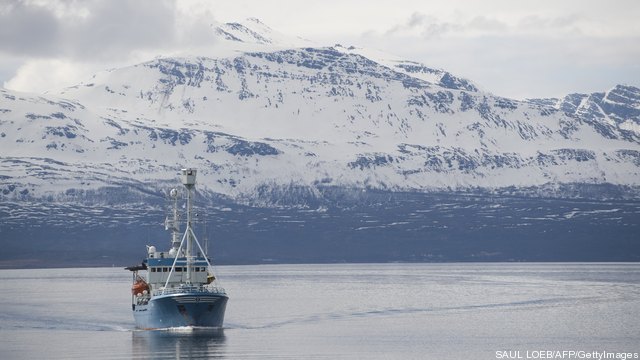
Will Netflix still be around in 2147? How about Facebook in 2154? Or Groupon in 2158? Probably not. Scores of companies, particularly in consumer tech, come and go. That makes the longevity of a business like railroad giant Union Pacific (UNP) all the more remarkable. The company celebrated its 150th anniversary on July 1. President Lincoln apparently took time from his busy schedule of fighting vampires on July 1, 1862 to sign the Pacific Railway Act. That paved the way for Union Pacific to start building part of the first transcontinental railroad.
I spoke with Union Pacific president and CEO Jack Koraleski Monday at the New York Stock Exchange, where he and 11 other Union Pacific workers rang the closing bell in honor of the company’s sesquicentennial, about the company’s long track record (Sorry. Couldn’t resist … just consider yourselves lucky I’m not indulging Baby Buzz and sprinkling references to Thomas The Tank Engine and Dinosaur Train throughout the piece) and the U.S. economy.
Koraleski said that Union Pacific is holding up well despite the global market and economic turmoil, noting that the fact that markets react to the morphing stance of German chancellor Angela Merkel shows how volatile the climate is right now. It’s clearly a concern for the company since Koraleski said that about 40% of its business either originates or terminates somewhere outside the U.S.
Oil
Sign up and get Breaking Energy news in your inbox.
We will never sell or share your information without your consent. See our privacy policy.
Invitations are allegedly out and would be suitors are already pruning and preening in advance of Abu Dhabi’s expected award of oil exploration and production concessions in 2014. Glittering amongst concessions that cover a staggering 10% of the world’s proven oil reserves are the Asab, Bab and Bu Hasa supermajor fields, “any portion [of which] would constitute a substantial prize for any energy company.”
The problem facing suitors, however, is that although the relationship between contracting West and producing East has been turned on its head since the existing concessions were granted almost 75 years ago; the path to the 2014 concessions is seemingly as shrouded in backroom smoke as its colonial predecessors. If you have an invitation; which rings need to be kissed & just how tight will your proposed margins have to be? If you don’t; can you still wrangle one, gate crash or cozy up to a winsome-looking invitee? Keep reading →

As presidential candidates prepare positions on energy policy, a coalition of U.S. citizen groups is calling for the phase-out of natural gas, coal and nuclear power in favor of a more aggressive adoption of renewable-energy sources.
Thirty-six local organizations who say they represent 1.1 million members reject President Obama’s “all of the above” approach to energy policy, saying it perpetuates the dominance of fossil fuels while avoiding what they call the “real solutions” of clean energy. Keep reading →

It’s the 1 million barrel per day question.
By 2035, US petroleum imports could drop as low as one in every four barrels consumed, but achieving that much import reduction depends heavily on raising vehicle mileage standards. Keep reading →
 U.S. Energy Information Administrator Guy Caruso (R) compares notes with U.S. Chamber of Commerce Institute for 21st Centery Energy Managing Director Karen Harbert (C) as Deutsche Bank Chief Energy Economist Adam Sieminski looks on before they testify to the House Select Committee on Energy Independence and Global Warming about ‘The Future of Oil’ June 11, 2008 in Washington, DC.
U.S. Energy Information Administrator Guy Caruso (R) compares notes with U.S. Chamber of Commerce Institute for 21st Centery Energy Managing Director Karen Harbert (C) as Deutsche Bank Chief Energy Economist Adam Sieminski looks on before they testify to the House Select Committee on Energy Independence and Global Warming about ‘The Future of Oil’ June 11, 2008 in Washington, DC.
As US oil production from shales grows, it may make sense to allow some oil exports in specific circumstances, says the new head of the Energy Information Administration. Keep reading →

The Obama administration will go ahead with more drilling in Arctic waters, though at a pace that allows for more research before additional permits are granted. The administration will hold new lease sales for oil companies to drill in the Chukchi and Beaufort Seas just north of Alaska, Interior Secretary Ken Salazar said Tuesday in a conference call with reporters. But the new leases won’t be issued until 2016, allowing more time so that nations bordering the Arctic can identify the region’s resources and figure out which areas need to be protected. “These resources, if developed safely, can be an important component to the all-of-the-above energy strategy,” said Salazar.

Murphy Oil Corp. (MUR) is evacuating all non-essential personnel from its operations in the Gulf of Mexico as the likelihood of a tropical storm in the region increases, the company said Friday.

The potential for underground injections to cause earthquakes was thought to be a problem for natural gas, but a new National Research Council study says the impacted sector will not be gas. It’s a problem for coal.
Carbon capture and sequestration (CCS), pulling carbon out of emissions from coal-burning and storing it deep underground, has been prominent in clean energy planning over the last decade as a way to keep taking advantage of coal resources to meet energy demand while tackling climate change. Keep reading →

The oil and gas industry can bring new resources to bear in its battle against critics and efforts to achieve a “social license to operate.” A small cleantech firm has developed patented technology that allows producers to recycle up to 100% of their well flowback and produced water during hydraulic fracturing operations.
“We use and have invented an advanced oxidation process to treat water on the front end of the [fracking process] and at the flow rate of the [fracking process], eliminating liquid biocides and chemicals for bacteria growth and scale inhibition, and allowing 100% recycling of the flowback and produced waters,” said EcoSphere Technologies Chairman and CEO Charles Vinick said during a recent radio appearance. Keep reading →

Renewable Energy’s Five Year Plan: Building the Transparency Set Amid Hectic Growth
By Peter Gardett‘What gets measured, gets managed,’ is an long-standing cliché of business, but its truth is often self-evident when it comes to governance. In planning energy policies, regulators and businesses and even voters must have access to the right kind of data before they can even see which problems are most pressing and which solutions most viable.
The International Energy Agency’s new five-year forecast for the renewable energy sector joins the fuel-specific reports covered by its widely read oil, natural gas and coal mid-term reports. Those fossil fuels need little introduction, and in the developed countries covered by IEA and its parent organization – the OECD – production, processing, use and reserves of the traditional energy complex is very advanced and taken as fact. Keep reading →